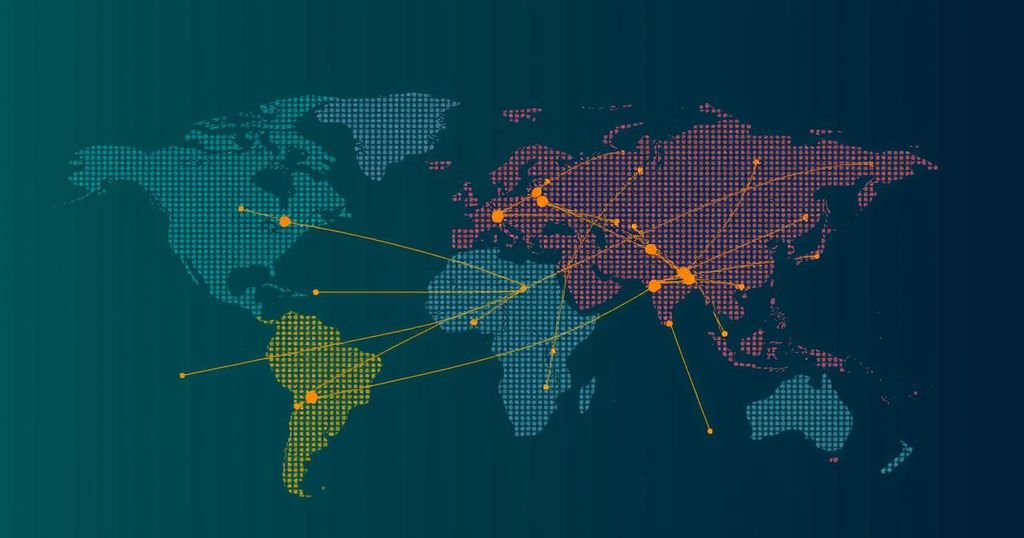Key Insights on Global Threats from FSI Scholars

The article discusses key global threats identified by scholars from the Freeman Spogli Institute, such as climate change, democracy under threat, competition with China, the conflict in Ukraine, and tensions in the Middle East. The scholars emphasize the need for strategic responses to address these multifaceted challenges and enhance global stability.
The world is currently navigating a myriad of complex and interrelated challenges such as climate change, the erosion of democracy, geopolitical competition with China, ongoing conflict in Ukraine, and escalating tensions in the Middle East. Scholars from the Freeman Spogli Institute for International Studies (FSI) recently convened at Stanford University to analyze these global threats in a panel discussion titled “Global Threats Today: What’s At Stake and What We Can Do About It.” The event featured insights from notable experts including Michael McFaul, Amichai Magen, Didi Kuo, Steven Pifer, Oriana Skylar Mastro, and Marshall Burke. Illiberal Coalitions and the Threat to World Order Amichai Magen highlighted the emergence of a new coalition of autocratic powers, referred to as the “axis of misery” or the “axis of resistance,” comprising Russia, Iran, North Korea, and China. This coalition seeks to dismantle the liberal international order, leading to increased uncertainty and chaos within the global system. Emphasizing the historic accomplishment of reducing defense spending under the liberal order, Magen warned that the erosion of this norm could reignite a dangerous reflection of past conflicts, endangering nations including Ukraine, Israel, and Taiwan. Internal Democratic Threats Didi Kuo elucidated that the principal threats to democracy arise internally rather than externally. Leaders may initially be elected democratically but risk eroding crucial democratic institutions and processes from within. Kuo underscored the importance of pro-democracy coalitions that have thwarted the ambitions of illiberal leaders in various nations, examples of which include France and Brazil. She stressed that this flexible adaptability is essential in sustaining vibrant democracies. Ukraine’s Resilience Steven Pifer argued against the prevailing narrative framing Ukraine as a losing entity in its conflict with Russia. Despite claims of territorial gains by Russia, Pifer pointed out that such advances are achieved at a devastating cost, highlighting significant Russian casualties. He emphasized the existential nature of the conflict for Ukraine and called for enhanced support from the West to bolster Ukraine’s defense and stability in Europe. The Ongoing Challenge of China Oriana Skylar Mastro asserted that while discussions around China’s slowing economy dominate the narrative, the long-term competition with China remains a critical issue. Notably, China has risen to become a significant global power, and Mastro emphasized the necessity of a well-strategized U.S. response to maintain its interests and influence within Asia and beyond. Progress and Challenges in Climate Change Lastly, Marshall Burke focused on the progress being made in addressing climate change, citing a 20% reduction in emissions since 2005 due to legislative efforts like the Inflation Reduction Act. However, he noted the need for continued and enhanced efforts in mitigation and adaptation strategies to combat the anticipated impacts of climate change, projecting significant warming trends in the future.
In the present global landscape, various multifaceted threats pose significant challenges to international stability, democracy, and environmental sustainability. The crisis in Ukraine, the intensifying competition with China, and internal democratic dissent illustrate the complex dynamics at play. Additionally, climate change remains a pressing concern, requiring urgent action and strategic adaptation. These threats are not isolated; they intersect and exacerbate one another, necessitating a comprehensive understanding of their implications and potential solutions. The recent panel at Stanford University brought together experts who elucidated these pressing issues and explored viable paths forward for achieving resilience in the face of these challenges.
In conclusion, the discussions presented by the FSI scholars illustrate the depth and complexity of contemporary global threats. The emergence of autocratic coalitions poses a significant challenge to the liberal international order, while the internal erosion of democracies signals a pressing need for pro-democracy advocacy. Ukraine’s determination amidst wartime struggles and the ongoing competition with China further complicate the geopolitical landscape. Finally, while progress on climate change is evident, substantial efforts are still required to secure a sustainable future. Addressing these threats in a coordinated and strategic manner is vital for global stability and prosperity.
Original Source: fsi.stanford.edu






